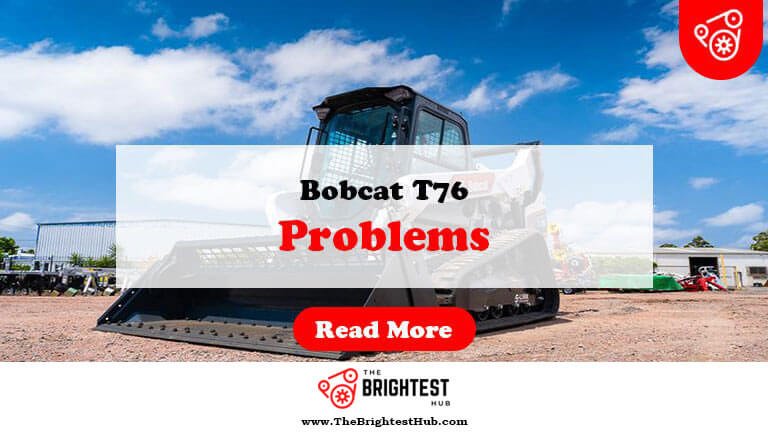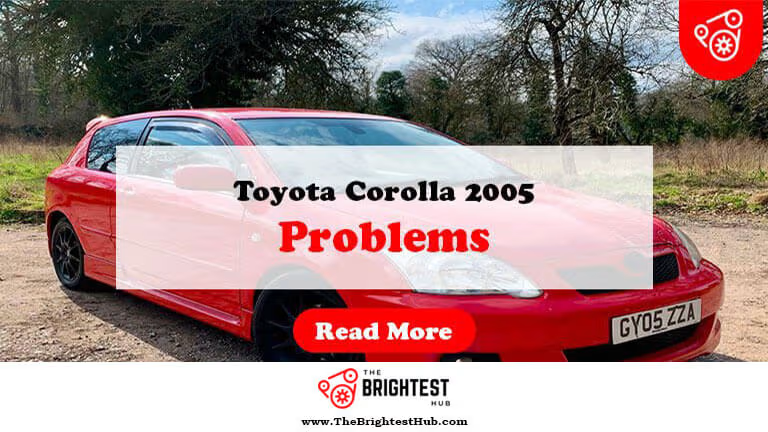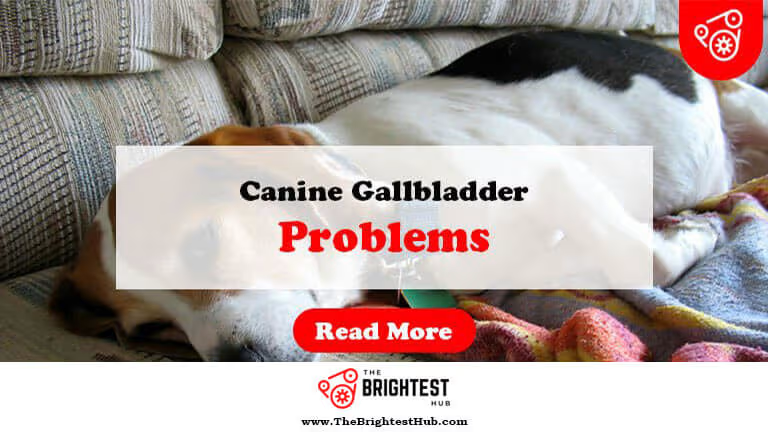Maine Coon Behaviour Problems: Solutions and Tips
Maine Coon behavior problems can include excessive vocalization, aggression, and litter box issues. Understanding these behaviors helps owners address them effectively.
Maine Coons are known for their friendly and playful nature, but they can exhibit certain behavioral challenges. These problems often arise from environmental factors, lack of socialization, or health issues. Owners may notice increased vocalizations, which can signal stress or boredom.
Aggression may occur due to territorial disputes or fear. Litter box problems might indicate medical concerns or dissatisfaction with the litter type. Identifying the root cause of these behaviors is essential for effective management. By addressing these issues, owners can ensure a happier and healthier life for their beloved Maine Coon. Understanding their needs is key to fostering a positive relationship.
Maine Coon Characteristics

The Maine Coon is a unique breed known for its friendly nature. Their large size and tufted ears make them stand out. Understanding their characteristics helps in managing their behavior.
Distinctive Traits
Maine Coons have several distinctive traits:
- Size: They are one of the largest domestic cat breeds.
- Fur: Their thick, water-repellent coat keeps them warm.
- Personality: They are friendly, playful, and sociable.
- Intelligence: Maine Coons are smart and curious.
- Vocalization: They communicate with unique chirps and trills.
These traits contribute to their overall charm. Owners often find them affectionate and engaging. Their social nature makes them great companions.
Common Misconceptions
Many misconceptions exist about Maine Coons. Here are a few:
| Misconception | Reality |
|---|---|
| Maine Coons are aggressive. | They are generally gentle and friendly. |
| They are high-maintenance pets. | Regular grooming keeps their coat healthy. |
| They don’t get along with other pets. | They usually adapt well to different animals. |
Understanding these misconceptions helps in building a better bond. Maine Coons thrive in loving environments.
Identifying Behavior Issues
Maine Coons are known for their friendly nature. Sometimes, they show unusual behaviors. Identifying these behavior issues early helps maintain their happiness. Understanding the signs can lead to better care and a happier pet.
Signs Of Distress
Recognizing signs of distress is vital. Here are some common indicators:
- Hiding: Your cat may hide more than usual.
- Excessive Grooming: Over-grooming can lead to bald spots.
- Vocalization: Increased meowing or yowling may occur.
- Changes in Appetite: Eating less or more than usual is concerning.
- Scratching Furniture: Unusual scratching can signal anxiety.
Observe your Maine Coon closely. Early detection leads to effective solutions. Keep a journal of their behavior changes. This helps track patterns and triggers.
Aggression Triggers
Aggression can stem from various triggers. Understanding these can prevent issues:
| Trigger | Description |
|---|---|
| Fear: | Unexpected noises or new environments can scare them. |
| Territorial Behavior: | New pets or changes in the home may provoke aggression. |
| Frustration: | Blocked access to toys or windows can lead to aggression. |
| Pain or Illness: | Health issues can make them irritable and aggressive. |
Monitor interactions with other pets. Identify triggers to help manage aggression. A calm environment reduces stress for your Maine Coon.
Scratching And Biting
Maine Coons are known for their friendly nature. However, they can develop scratching and biting behaviors. Understanding these actions is crucial for a happy cat and home.
Understanding Natural Instincts
Maine Coons have strong instincts. They are natural hunters. Scratching and biting are part of their play and hunting behavior.
- Scratching helps them sharpen claws.
- Bitings mimic catching prey.
- They express excitement or frustration through these actions.
Proper understanding reduces frustration. Owners can manage these behaviors effectively. Recognizing their instincts is key.
Effective Deterrents
Deterring scratching and biting involves several strategies.
| Strategy | Description |
|---|---|
| Provide Scratching Posts | Encourage scratching on designated posts. |
| Use Cat Trees | Offer vertical spaces for climbing and scratching. |
| Playtime | Engage in interactive play to burn energy. |
| Redirect Behavior | Distract them with toys if they scratch or bite. |
| Positive Reinforcement | Reward good behavior with treats. |
Consistency is essential. Regularly use these strategies. This helps create a calm environment.
Litter Box Problems
Maine Coons are known for their friendly nature. However, they can face litter box problems. Understanding why your Maine Coon avoids the litter box is essential. This issue can lead to stress for both you and your pet.
Reasons For Avoidance
Several factors can cause a Maine Coon to avoid the litter box:
- Litter Box Type: Some cats dislike certain types of boxes.
- Litter Material: Cats can be picky about litter texture.
- Location: A noisy or busy area can deter them.
- Cleanliness: A dirty box is unappealing.
- Health Issues: Pain or discomfort can lead to avoidance.
Maintaining Cleanliness
Keeping the litter box clean is crucial. Here are some tips:
- Clean the box daily. Remove clumps and waste.
- Wash the box weekly with mild soap.
- Change the litter completely every 1-2 weeks.
- Provide one box per cat, plus one extra.
- Monitor your cat’s health regularly.
By maintaining cleanliness, you encourage your Maine Coon to use the litter box. A happy cat leads to a happy home.
Excessive Meowing
Maine Coons are known for their friendly nature. However, excessive meowing can signal a problem. Understanding the reasons behind this behavior is crucial. This article explores the causes and solutions for excessive meowing in Maine Coons.
Communication Or Attention Seeking
Maine Coons are vocal cats. They often meow to communicate. Here are some reasons why they might meow excessively:
- Hunger: They may want food or treats.
- Loneliness: They seek companionship and attention.
- Health issues: Pain or discomfort can cause increased vocalization.
- Stress: Changes in the environment can lead to anxiety.
Understanding their needs helps reduce excessive meowing. Engage with your Maine Coon regularly. Spend time playing and cuddling. This can satisfy their need for attention.
When To Be Concerned
Not all meowing is normal. Here are signs that may require attention:
- Change in behavior: Sudden increase in vocalization.
- Signs of distress: Hiding, aggression, or excessive grooming.
- Health issues: Loss of appetite or lethargy.
- Age: Older cats may develop health problems.
Monitor your Maine Coon’s behavior closely. Keep track of changes in their vocalizations. If concerns arise, consult a veterinarian. Early intervention can prevent serious issues.
| Signs of Concern | Possible Causes | Recommended Action |
|---|---|---|
| Excessive meowing | Hunger, loneliness, health issues | Check food, provide companionship |
| Sudden behavior change | Stress, health problems | Consult a vet |
| Signs of distress | Emotional or physical discomfort | Seek professional help |
Inter-cat Aggression
Inter-cat aggression is a common issue among Maine Coons. These large, friendly cats may show aggression due to territorial disputes or social stress. Understanding their behavior helps owners manage conflicts effectively.
Introducing New Cats
Introducing a new cat can trigger aggression. Maine Coons are territorial. A gradual introduction is essential for harmony.
- Keep the new cat in a separate room.
- Allow the resident cat to explore the new scent.
- Use a barrier, like a baby gate, for initial meetings.
- Monitor their interactions closely.
Use positive reinforcement to encourage good behavior. Reward both cats with treats. This builds positive associations.
Establishing Hierarchy
Maine Coons establish a social hierarchy. Understanding this hierarchy can reduce conflicts. Here are steps to help:
- Observe their body language.
- Identify the dominant cat.
- Provide enough resources for both cats:
| Resource | Recommendation |
|---|---|
| Food bowls | One for each cat |
| Litter boxes | One per cat plus one extra |
| Resting spots | Multiple cozy spots |
Provide plenty of vertical space. Cat trees and shelves offer safe zones. This reduces tension and promotes peace.
Destructive Chewing
Maine Coons are playful and curious cats. Sometimes, their curiosity leads to destructive chewing. This behavior can damage furniture, shoes, and other household items. Understanding why they chew is essential for finding solutions.
Safe Alternatives
Provide safe items for your Maine Coon to chew. This helps protect your belongings and satisfies their chewing needs. Here are some safe alternatives:
- Cat Chew Toys: Look for durable toys made for chewing.
- Cardboard Boxes: Cats love to shred cardboard.
- Catnip Sticks: These are fun and safe to chew.
- Rawhide Chews: Check for pet-safe options.
Deterring Unwanted Chewing
To stop unwanted chewing, use these simple strategies:
- Restrict Access: Keep valuable items out of reach.
- Use Deterrents: Try sprays that taste bad to cats.
- Reward Good Behavior: Praise your cat for chewing safe items.
- Provide Exercise: Engage your cat in play to reduce boredom.
Understanding your Maine Coon’s chewing habits leads to better choices. Provide safe options and deter unwanted behavior effectively.
Separation Anxiety
Separation anxiety is common in Maine Coons. These affectionate cats form strong bonds with their owners. When left alone, they may feel stressed. Understanding their behavior helps in addressing this issue.
Symptoms To Watch For
Recognizing the signs of separation anxiety is crucial. Here are some common symptoms:
- Excessive vocalization: Loud meowing or crying.
- Destructive behavior: Scratching furniture or knocking items over.
- Inappropriate elimination: Urinating outside the litter box.
- Over-grooming: Excessive licking leading to bald spots.
- Pacing: Restlessness and inability to settle down.
Monitor your Maine Coon for these signs. Early detection is vital for effective management.
Creating A Comfortable Environment
A comfortable environment helps reduce separation anxiety. Here are some tips:
- Safe space: Create a cozy area with a bed and toys.
- Calming scents: Use pheromone diffusers to soothe them.
- Background noise: Play soft music or leave the TV on.
- Toys: Provide engaging toys to keep them occupied.
- Interactive play: Spend quality time before leaving.
Implement these strategies to help your Maine Coon feel secure. A happy environment can ease their anxiety.
Training And Discipline
Maine Coons are intelligent and playful cats. Training them requires patience and consistency. Understanding their behavior helps in setting proper discipline. Positive reinforcement works best for these cats.
Positive Reinforcement Techniques
Using positive reinforcement encourages good behavior. Here are some effective techniques:
- Treats: Reward your cat with small treats.
- Praise: Use a happy voice to praise them.
- Playtime: Engage them in their favorite games.
Consistency is key. Always reward good behavior immediately. This helps your Maine Coon understand what you expect. Avoid punishing them, as it can lead to fear and anxiety.
Setting Boundaries
Setting clear boundaries is crucial for your Maine Coon. Here’s how to do it:
- Identify Problem Behaviors: Know what behaviors need correction.
- Use Commands: Teach simple commands like “no” or “stop.”
- Redirect Behavior: Use toys to distract from unwanted actions.
- Be Consistent: Apply rules every time to avoid confusion.
Creating a structured environment helps them feel secure. Your Maine Coon will thrive with clear expectations. Enjoy the bonding experience that training provides.
Diet And Behavior
The diet of a Maine Coon significantly affects its behavior. Proper nutrition supports physical health and mental well-being. An imbalanced diet can lead to various behavior problems.
Impact Of Nutrition
Nutrition plays a crucial role in a Maine Coon’s behavior. Here are some key points:
- Protein-rich diet: Essential for energy and muscle development.
- Omega fatty acids: Promote healthy skin and coat.
- Vitamins and minerals: Support overall health and mood stability.
Poor nutrition can lead to:
- Aggression: Lack of proper nutrients can cause irritability.
- Hyperactivity: A sugar-rich diet may lead to excess energy.
- Depression: Missing essential nutrients can result in lethargy.
Recommended Feeding Practices
To maintain a healthy Maine Coon, follow these feeding practices:
| Age | Recommended Food Type | Feeding Frequency |
|---|---|---|
| Kitten (0-6 months) | High-protein kitten food | 4 times a day |
| Adult (6 months – 7 years) | Balanced adult cat food | 2 times a day |
| Senior (7 years and older) | Senior cat food with joint support | 2 times a day |
Monitor your cat’s weight. Adjust portions as needed. Provide fresh water daily. Avoid overfeeding. Treats should not exceed 10% of daily calories.
Health Concerns Mimicking Behavioral Problems
Maine Coons are known for their friendly nature. However, sometimes their behavior changes. This can be alarming for cat owners. Health issues may cause these behavioral changes. Recognizing the signs is essential for your cat’s well-being.
Common Health Issues
Several health problems can affect Maine Coons. These issues may mimic behavioral problems. Here are some common health concerns:
- Dental Disease: Pain can lead to aggression or withdrawal.
- Obesity: This can cause lethargy and decreased playfulness.
- Hyperthyroidism: Increased activity may seem like anxiety.
- Arthritis: Painful joints can lead to changes in behavior.
- Urinary Tract Issues: Frequent trips to the litter box can mimic anxiety.
| Health Issue | Behavioral Symptoms |
|---|---|
| Dental Disease | Aggression, withdrawal |
| Obesity | Lethargy, less playfulness |
| Hyperthyroidism | Increased activity, anxiety |
| Arthritis | Reluctance to jump, changes in play |
| Urinary Tract Issues | Frequent litter box visits, agitation |
When To Visit The Vet
Monitoring your Maine Coon’s behavior is crucial. Certain signs indicate a vet visit is necessary:
- Sudden aggression: Uncharacteristic behavior can signal pain.
- Loss of appetite: This may indicate an underlying health issue.
- Increased hiding: Cats often hide when they feel unwell.
- Changes in litter box habits: Watch for any unusual behavior.
- Excessive grooming: This can be a sign of stress or discomfort.
Understanding these health concerns helps in recognizing the problem. Quick action leads to better care for your Maine Coon.
Tips For A Happy Maine Coon
Maine Coons are friendly and playful cats. They thrive on attention and activities. To keep them happy, focus on exercise and mental stimulation. Here are some practical tips.
Regular Exercise
Exercise is crucial for your Maine Coon. They need to stay active to maintain good health. Here are some ways to ensure they get enough exercise:
- Interactive Toys: Use feather wands and laser pointers.
- Cat Trees: Provide climbing opportunities to explore.
- Fetch Games: Teach them to retrieve balls or toys.
- Outdoor Time: Supervised walks on a leash can be fun.
Regular playtime keeps their weight in check. Aim for at least 30 minutes of play every day. This helps reduce behavior problems and keeps them engaged.
Mental Stimulation Activities
Maine Coons are intelligent cats. They need mental challenges to prevent boredom. Here are some activities to stimulate their minds:
- Puzzle Feeders: Use feeders that require problem-solving.
- Hide and Seek: Hide treats around the house for them to find.
- Training Sessions: Teach tricks using positive reinforcement.
- Interactive Games: Use apps designed for pets on tablets.
Rotating activities keeps them interested. Always observe their reactions. This helps you find what excites them most. Remember, a happy Maine Coon is a well-exercised and mentally engaged Maine Coon.
Frequently Asked Questions
What Common Behavior Problems Do Maine Coons Have?
Maine Coons may exhibit aggression, excessive vocalization, or litter box issues, which can often be addressed with training.
How To Manage Maine Coon Aggression?
To manage aggression, provide consistent training, engage in playtime, and ensure they have their own safe space.
Why Is My Maine Coon So Vocal?
Maine Coons are naturally talkative. They may vocalize due to boredom, seeking attention, or wanting to communicate with you.
Do Maine Coons Have Separation Anxiety?
Yes, Maine Coons can experience separation anxiety. Regular interaction and stimulating toys can help ease their stress.
How To Stop Maine Coon Destructive Behavior?
Redirect destructive behavior by providing scratching posts, engaging toys, and regular playtime to keep them mentally stimulated. “`
Conclusion
Understanding Maine Coon behavior problems is vital for every owner. Addressing issues early can lead to a happier, healthier cat. Regular socialization and mental stimulation play key roles. Always consult a veterinarian for persistent concerns. By being proactive, you can foster a loving and well-adjusted Maine Coon companion.






